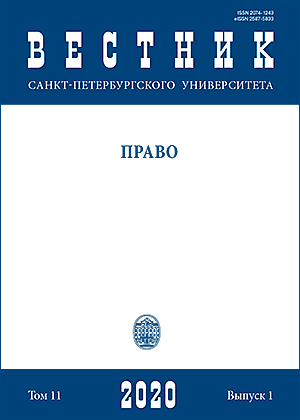New trends and features of the development of the civil procedure law system in China
DOI:
https://doi.org/10.21638/spbu14.2020.114Abstract
The amendment of the Civil Procedure Law in 2012 and the introduction of the latest judicial interpretation of civil procedure in 2014 represent yet another effort at modernizing this body of law in China. The reform of the CPC corresponds to the trends in the internationalization of the civil process. Its key position is the constitutionalization of the right to claim, which specifies the theory of “access to justice.” In order to more effectively ensure “the right of citizens to access justice,” the future judicial reform should be aimed at a closer systematization and coordination of the structure of civil proceedings. The definition of “ensuring the right to claim” as the supreme goal of the CPC of the PRC is a necessary basis for improving legislation, as well as the most urgent task of impartial justice. The reform conforms to the trend of constitutionalization and internationalization of the protection of litigation rights, as well as serves as the specific embodiment of the concept of “Access to Justice” in the process of judicial reform. In order to protect people’s “right to a fair trial” more effectively, much more attention will be paid to the integrity and overall planning of the design of the Law in the future so as to enhance the transformation of all aspects involved. Therefore, setting “the protection of litigation rights” as the supreme goal of Civil Procedure Law is not only the necessary foundation for refining legislation, but also the primary task of achieving judicial justice.
Keywords:
the Civil Procedure Law, the protection of litigation right, Access to Justice, judicial reform
Downloads
References
Downloads
Published
How to Cite
Issue
Section
License
Articles of "Vestnik of Saint Petersburg University. Law" are open access distributed under the terms of the License Agreement with Saint Petersburg State University, which permits to the authors unrestricted distribution and self-archiving free of charge.






